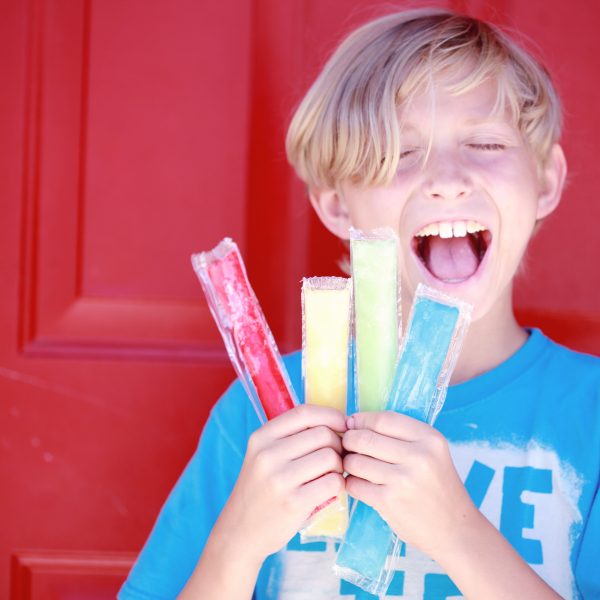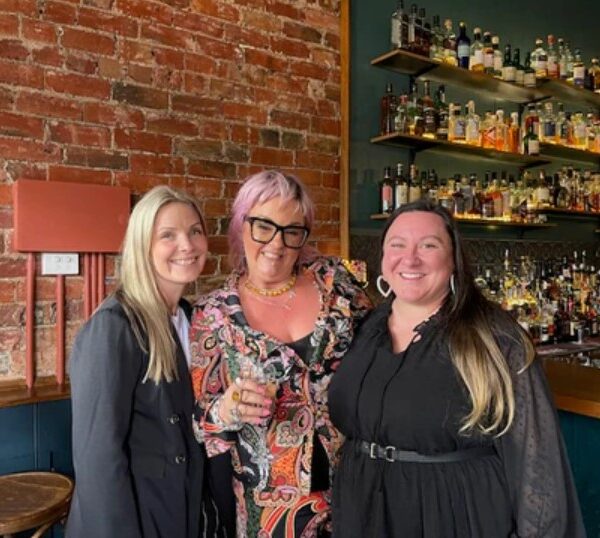Mind the empathy gap: When it comes to preventing violence against women, children are the future

Gender based violence and violence against women is at crisis point globally. The alarming number of femicides committed by family members or intimate partners is a proclamation that humanity is still grappling with deep-rooted inequalities and violence against women and girls, rendering many homes unsafe yet this is preventable.
Most states in Australia recently held rallies to not only amplify awareness about the alarming number of women killed, allegedly by the hands of men so far this year,, but to also use these happenings to demand action from the Government and for these murders to be a force for systemic change.
As early childhood professionals, we are in unique and privileged positions. Early childhood is the most effective time for infusing cultures of respect and is the peak time to develop children’s self-awareness. We have the capacity to respond to community concern and to advance change.
Early learning professionals are proficient in the governing documents that make explicit children’s rights, such as the UN Convention on the Rights of the Child,and we have been fiercely advocating for quite some time for ‘early childhood environments to be settings for children to learn about their rights and develop respect for those around them’
Both well-being and literacy skills are mandated in early childhood curriculums, including our own Australian Early Years Learning Framework to support children to have both a strong sense of wellbeing and to be effective communicators.
The importance of children’s wellbeing has been supported by Be You, specifically through its Early Support domain that gives educators access to modules to support them when it comes to noticing and assisting children and young people who might be showing signs of mental health issues.
While there are multiple avenues of information and training to support early learning professionals to develop their capacity to help children to identify and explore emotion, there is also a need for education and care professionals to help children to ‘delve deeper’ and become familiar with their own nervous systems, and how emotions reveal themselves within their unique and individual selves.
When children are able to recognise body sensations, and how they uniquely react to stressful situations, they gain a better understanding of how they can assure themselves back into a comfortable state of being.
Children need to develop not only academic, literacy and numeracy skills for functioning in the world, but the skills to feel good and function well within themselves
If we are committed to working responsively, with intentionality to address the drivers of domestic and family violence, this must be non-negotiable in early years curriculums.
If children hear safety and wellbeing language in safe environments, such as early learning settings, and gain practical understandings about human rights and fairness, we can significantly alter societies violence trajectory and manifest restorative care for safer communities.
Preventative education requires curriculums rich in felt safety and emotional literacy, to build individual capacity for resilience; however, we as educators, need to commit to connection over compliance and adopt the practice of co-regulation.
When we hold space for children to feel and explore situations when they have felt sensitive and vulnerable in their environments, we instill a collaborative approach to the care of others. If we lean into neuroscience, understanding of what happens in the brain and body, causing us to react, we can more readily dispel antiquated approaches to behaviour guidance. Responding in this way not only reinforces for children the importance of seeking help to regulate and manage emotional responses but also lays foundations for attentive community responses to supporting others.
We need to ensure all stakeholders, inclusive of children, are afforded the opportunity to understand their rights, to raise concerns, seek assistance and give feedback in culturally and socially safe ways. We must radically dissipate the notion that safety assessments are undertaken in the absence of children.
For example, when we plan our outings we consider preventative measures to mitigate injury, this must include against abuse. We need to include children in this planning and evaluation, in developmentally appropriate ways. Discussions, diagrams, maps, symbols and even photographs can all be used with children, to co create safety plans. Together you can outline the safest positions and strategies to maintain rights to privacy and protection when in your communities i.e., to access toilets, when moving through crowds, or using public transport.
This is the key to protection and to violence restitution for women, children and families, and anyone else deemed more vulnerable to abuse. By using a lens of equity, we champion vulnerable groups, and our education settings become powerful spaces to rewire the evolutionary archetype for harmful social norms.
Using multi modal resources
By using a range of tools like posters, books, audio, video, dress ups, and gender neutral figurines we can diffuse rigid gender stereotyping, strong held beliefs about masculinity, aggression, dominance and control.
Curriculum content supporting anti bias practices and ethical decision making means our resources, in everyday environments, intentionally dismantle rigid gender and social paradigms. Let’s commit to proactively influencing societal expectations and the landscape of respect and care.
It is essential for the early childhood sector to collectively take action to provide a strong foundation for a future that has an entrenched understanding of emotions, and one that empowers us to stand up and call out inappropriate behaviour and discrimination.
We can advance robust respect for all by developing children’s awareness and exposure to vigorously advocating for one’s self and others. We have to work responsively and with intentionality to address the drivers of domestic and family violence and use our curriculums as a strong platform for diffusing societies violence trajectory and to manifest restorative care for safer communities.
Family and domestic violence support services:
- The Survivor Hub
- Full Stop Australia: 1800 385 578
- 1800 Respect National Helpline: 1800 737 732
- DV Connect Women’s Line: 1800 811 811
- 13 YARN 13 92 76
- QLife (LGBTIQA+) 1800 184 527
- Kids Helpline: 1800 55 1800
- Headspace: 1800 650 890
- Lifeline (24-hour Crisis Line): 13 11 14
- MensLine Australia 1300 551 800
About Nicole:
Nicole Talarico is the founding director of Talarico Consulting and Medical Action Bag. Nicole has most recently written a book about Asserting a Culture of Child Safety to guide education and care services to create and maintain physical, emotional, spiritual and culturally safe environments. Best known as an advocate for professionalism and children’s rights with a social justice lens always present, Nicole is now undertaking her Masters of Social Work with a Child and Family lens.
Nicole is a committee member of Early Childhood Australia Victorian Branch who convenes their Special Interest Groups, sits on the Early Childhood Australia National Reconciliation Advisory Group and a member of Social Justice in Early Childhood. Nicole is personal and knowledgeable, assisting services with governance for systemic change to align with professional and ethical standards, helping teams to create and maintain a positive workplace culture and community engagement. Nicole’s mentoring strategies have been outlined in a range of early childhood sector publications, inclusive of podcasts, with her insight being shared at conferences both nationwide and overseas.
Popular

Workforce
Quality
Research
When did it start to go wrong?
2025-12-18 08:00:46
by Fiona Alston

Quality
Practice
Research
Curiouser and Curiouser: What Alice helps us see about who should teach
2025-12-19 07:15:35
by Contributed Content

Quality
Provider
Research
A call to action for Early Childhood: Accountability and transparency in the National Strategy to prevent child abuse annual report 2025
2025-12-18 07:00:37
by Fiona Alston















